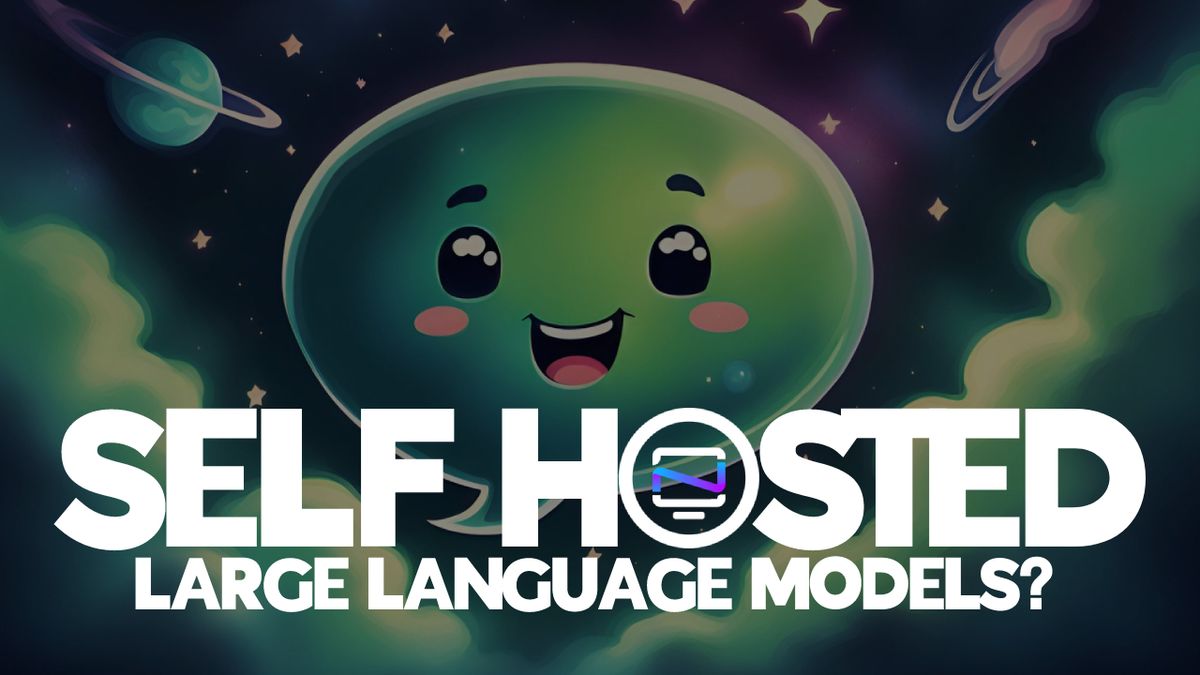Guide to LLMs: What They Are and How to Self-Host Them
Let's get up close and personal with LLMs and see how we can host them ourselves.

Born in November of 2022, ChatGPT has transformed the way we work and interact with technology, utilizing cutting edge artificial intelligence to simplify our lives. Central to this technological breakthrough are Large Language Models (LLMs), formidable AI algorithms capable of generating text that closely mimics human writing. In this article, we'll dive into the world of LLMs, exploring their definition, practical applications, and the critical significance of self-hosting these models, particularly within industries that prioritize data privacy.
Decoding Large Language Models (LLMs)
Large Language Models represent a significant stride in AI development, designed to comprehend and generate human language effectively. These sophisticated algorithms possess the remarkable capability to craft text that closely resembles human content. LLMs serve as the backbone of technologies like ChatGPT, enabling machines to engage in natural language conversations with users.

Think of language models as virtual language experts. They've been fed an enormous amount of text from books, articles, and websites, and they've learned how words fit together to create meaningful sentences. They can read and understand text, answer questions, and even write essays or stories.
The Multifaceted Applications of LLMs
One of the most noteworthy applications of LLMs is their integration into website chatbots, a valuable tool for businesses across various industries. By training these models on extensive datasets comprising customer information and product details, chatbots become adept at providing instant responses, delivering tailored recommendations, and offering round-the-clock customer support. This technology not only enhances operational efficiency but also ensures uninterrupted customer engagement, minimizing the need for human intervention.

The Imperative of Self-Hosting LLMs
While the advantages of LLMs are evident, there is a growing concern surrounding the reliance on cloud-based platforms like OpenAI and ChatGPT for these models. Companies employing such services may inadvertently relinquish control over data security and privacy, as their data becomes an integral part of the model's ongoing training.
Embracing self-hosting as an alternative is imperative, particularly for companies operating in heavily regulated sectors like healthcare and finance. Here's why self-hosting should be on your radar:
- Enhanced Security, Privacy, and Compliance: Self-hosting LLMs empowers organizations to regain ownership of their data, reinforcing security and ensuring adherence to privacy compliance regulations. Cloud-based services may incorporate uploaded data into their training datasets, potentially exposing sensitive information.
- Tailored Customization: Self-hosting LLMs offers organizations the flexibility to scale according to their unique requirements. When reliance on public API endpoints becomes limiting, self-hosting provides the opportunity to create bespoke solutions that align precisely with specific use cases.
- Avoiding Vendor Lock-In: Opting for open-source self-hosting solutions allows companies to sidestep vendor lock-in. This strategic move can lead to cost savings and greater autonomy over their AI infrastructure.
Exploring Leading Self-Hosting Solutions for LLMs
A plethora of self-hosting solutions cater to diverse needs and preferences. Here are a few options:
- OpenLLM via Yatai: Crafted with AI application developers in mind, OpenLLM offers a comprehensive toolkit for fine-tuning, serving, deploying, and monitoring LLMs. It supports RESTful APIs, gRPC, and boasts various features for model customization.
- Ray Serve Via Ray Cluster: Ray Serve presents a scalable model-serving library, accommodating a wide range of model types, including LLMs. It introduces features like response streaming, dynamic request batching, and multi-node/multi-GPU serving.
- Huggingface’s TGI: This solution provides a Rust, Python, and gRPC server designed for text generation inference. Its containerized nature facilitates quick and straightforward deployment of off-the-shelf Hugging Face models.
Choosing the Ideal Self-Hosting Solution
Selecting the most suitable self-hosting solution for your LLMs hinges on specific requirements and considerations. Factors such as hosting preferences, use cases, and available engineering expertise should guide your decision. Whether it's OpenLLM, Ray Serve, or Hugging Face's TGI, embracing self-hosting empowers organizations to wield the power of LLMs while maintaining data security and compliance with regulatory standards.
Final Notes and Thoughts
Large Language Models have ushered in a new era of AI powered interaction, especially through chatbots. Understanding their capabilities and recognizing the importance of self-hosting LLMs is vital, particularly within industries that prioritize data security and privacy. By opting for the right self-hosting solution, companies can harness the potential of LLMs while safeguarding sensitive data and adhering to regulatory requirements.






